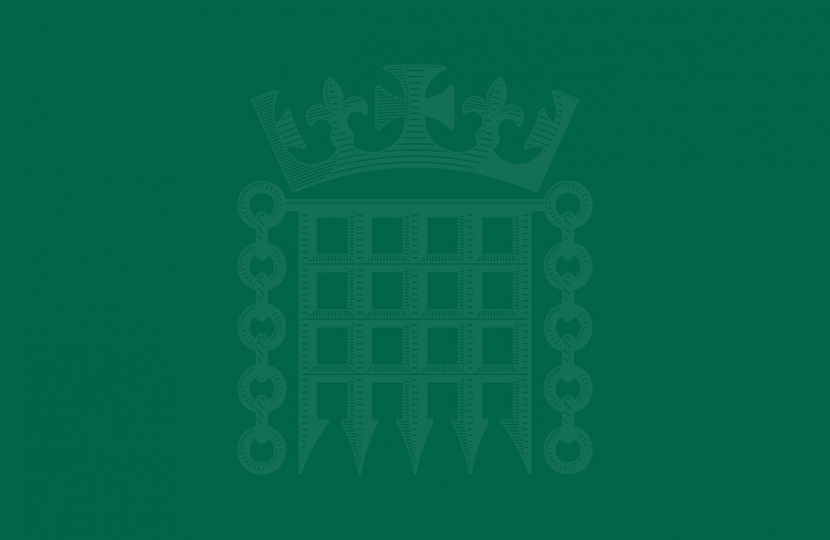
Brexit continues to consume Parliament as it has done for the past 3 years. You may be aware of my record of voting, I have consistently voted for Brexit and have voted to keep No Deal on the table. Furthermore, on both occasions when the opportunity was presented to Parliament by our PM Johnson to vote for an election and put this back to the public, I have voted twice for an election. Unfortunately, the opposition parties failed to break the impasse and vote for an election and allow the public to decide.
Regarding prorogation, with a new PM and fresh domestic agenda, it is the norm to prorogue before the Queens speech to lay out forthcoming government business which impacts our daily lives. With political party conferences underway for 3 weeks, this means that Parliament just isn’t sitting for a few days. This year’s timetable will be similar to any other, with Parliament gathering in early September, a break for the Party Conference Season, then re-gathering for a Queen’s Speech in October. That has been the pattern in every non-election year for decades, with the exception of 2011.
This Parliament has sat for the longest period in more than 400 years. The Opposition has constantly demanded a new parliament and a Queen’s Speech, only to complain that it is outrageous when they are given one. The Queen’s Speech must deliver a clear statement of how the powers and money we are getting back from the EU will be used to boost our economy and public services. The new government has promised to spend more on schools, the NHS and the police. It needs to show how this money will be spent so that we deliver the quality services the public expect.
As you may be aware the issue of prorogation is now at the Supreme Court and we will hear their verdict this week.
Returning to Brexit, In the 2016 referendum voters were presented with an unambiguous choice to remain in the EU or to leave. The consequences of either decision was communicated by campaign groups through a variety of print, audio-visual and digital media. The Government also sent a document to every household in the UK on the benefits of staying in the EU. The leaflet, which was delivered to every household in the country, under the heading “a once in a generation decision” read:
“This is your decision. The Government will implement what you decide.”
As the then Prime Minister, David Cameron said in his Chatham House speech on 10th November 2015:
“This is a huge decision for our country, perhaps the biggest we will make in our lifetimes and it will be a final decision. So, to those who suggest that a decision in the referendum to leave would merely produce another stronger regeneration and then a second referendum in which Britain would say, I say think again. The renegotiation is happening right now. And the referendum that follows will be a once in a generation choice. An in or out referendum. When the British people speak, their voice will be respected – not ignored. If we vote to leave, then we will leave. There will not be another renegotiation and another referendum.”
In 2017 the then Prime Minister made it clear that she would seek a free-trade deal, but that “no deal was better than a bad deal.” This was confirmed on page 36 of the Conservative Party General Election Manifesto. Both main political parties pledged at the General Election 2017 to respect the EU referendum result and these parties received more than 80 per cent of the vote. A Government was formed on the back of the promises made in the General Election to leave the Single Market, the Customs Union and the jurisdiction of the ECJ; leaving without a deal was a clear possibility. Most importantly, the House of Commons voted to enact Article 50 by 494 votes, which was unambiguous in making No Deal Brexit the default position. MPs knew that by voting for this the UK was legally bound to leave with or without a deal and this is the policy of PM Johnson.
Whatever your view of the decision, it must be accepted that 17.4 million people voted to leave the EU in 2016 and I strongly believe that their vote should be honoured. Politicians cannot choose which public votes they respect. To block the UK’s exit, to frustrate the referendum result or to unduly delay the Article 50 process would undermine the trust of the electorate in the democratic process and undermine our democracy.
I believe that democracy is about the effect of people’s votes not just the number of times that they vote. This week we have seen the Liberal Democrat’s announce at their conference that they would stop Brexit at all costs, which doesn’t seem liberal or democratic to ignore the public’s vote. Then we have the Labour Party, which holds every position on Brexit other than allowing Brexit to happen and not allowing the people to have a say with an election. Just more dither and delay.
We must not forget that the option of a second referendum has been voted down in Parliament.
I hope that you agree with me that implementing the decision of the 2016 people’s vote must be our focus, not least to ensure that the British people maintain their faith in the political system to carry out the will of the majority.
PM Johnson is devoting all his energy to ensure that we do get a deal with the EU as the PM said at the dispatch box:
“…. the Government will press on with negotiating a deal, while preparing to leave without one. I will go to that crucial summit in Brussels on 17th October, and no matter how many devices this Parliament invents to tie my hands, I will strive to get an agreement in the national interest.”
I support the Prime Minister in that endeavour and of course the preparations for leaving with no deal should continue.
I have had correspondence from all sides of the debate, including asking me to support a deal, support an immediate no deal Brexit, support a second referendum and support remaining in the European Union.
There is no pleasing everyone, but I am committed to delivering on the referendum result in the national interest and delivering Brexit on October 31st.
